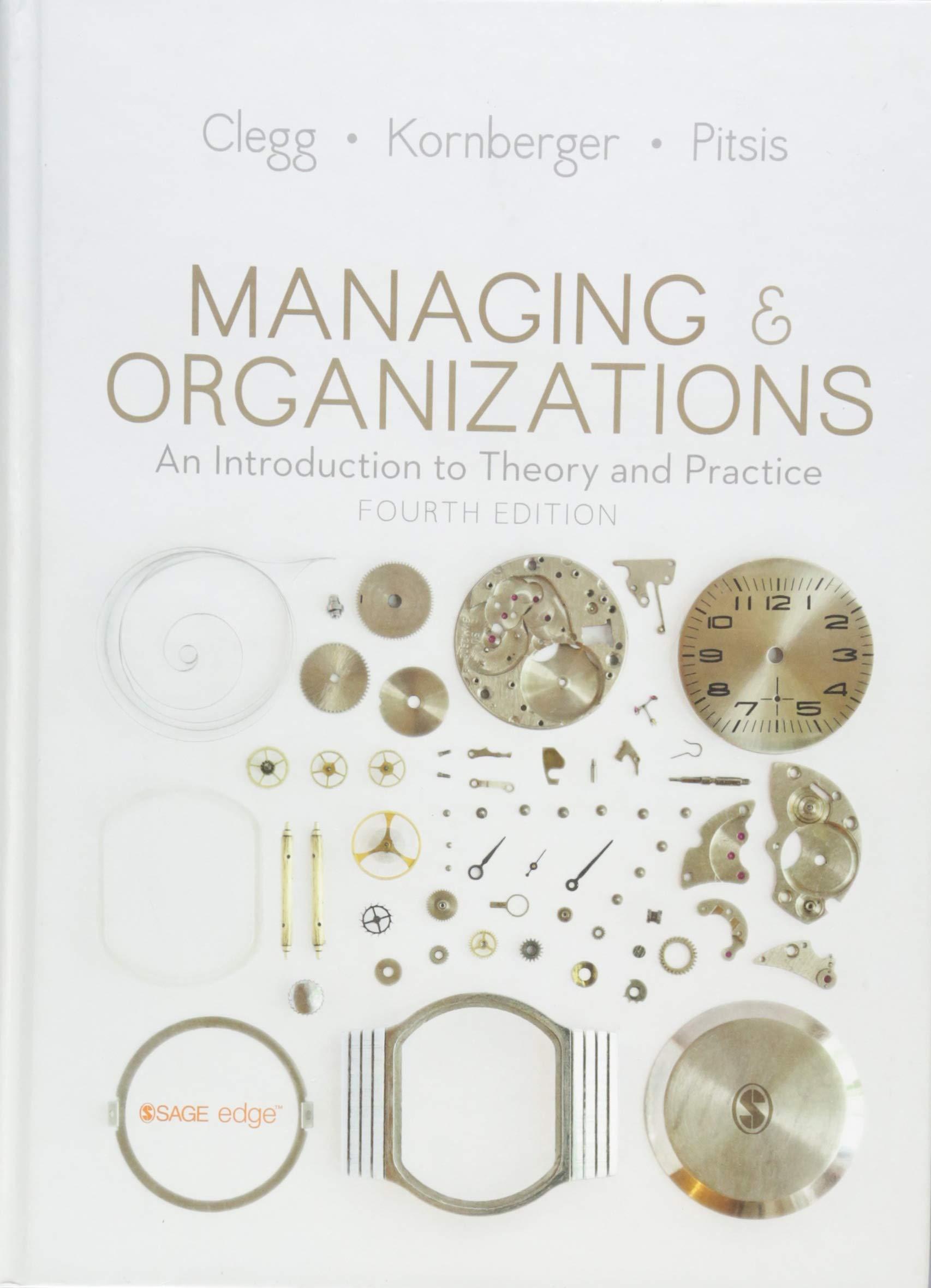Oil exploration is a high-risk, high-outcome endeavour. A single offshore well drilled on a geological prospect can
Question:
Oil exploration is a high-risk, high-outcome endeavour. A single offshore well drilled on a geological prospect can cost over A$100 million. A single discovery can amount to over A$100 billion. All wells are based on very qualified guesswork; some may have an estimated discovery probability as low as 20 per cent. We will present three sets of empirical observations on cre- ativity in oil exploration, all taken from a multi-year action-learning project with the exploration teams in a major oil corporation. The puzzle is this. Creativity is typically regarded as an excep- tion, associated with stable dispositions of gifted individuals, peak experiences, and intense bouts of more or less deliberate innovative efforts. What if creativity is not an exception, but a quality of forms of work, embedded in everyday practice? And can one address creativity at work in settings where key personnel question the usefulness of the very concept of creativity?
We had just been rounding off a two-day workshop with exploration teams. The agenda was to develop and rank hydrocarbon prospect ideas in selected geological regions, staged as an exploration creativity workshop'. The workshop was led by the chief geologist, while we as external researchers had assisted in design and some of the facilitation. It was the third workshop of its kind, and the corporate word of mouth on the two preceding ones was quite good. One of the participants - an experienced facilitator of many development processes in the corporation and well versed in creativity techniques - had asked to join the workshop to see what was going on. At the end of day two he popped a good question: "Why are you not using any creativity techniques?' Indeed - why had we not? Part of the answer may seem straightforward. Geologists use a highly specialized vocabulary that will typically leave out- siders in the wild after 5-10 seconds. External facilitating of, for example, a brainstorming session on geological prospects would be very likely to slow down the process, as the many complicated combinations of ideas would have to pass the filter of an (at least partially) ignorant mind. Could this have been overcome with the use of a trained geologist as facili- tator? Perhaps - the problem here seems to be that many creativity techniques presuppose distinctness of ideas at an early stage of conception and carry the implicit assumption of the value of steering idea generation and combination, and the assumption that such techniques are more or less valid across widely different domains of activity. These are hefty assumptions. The kinds of discussions we have witnessed in exploration teams seem more like the jamming of jazz musicians than developing new dishwashers. Fragments of ideas, data, viewpoints, and alternative interpretations are connected, unconnected, enriched, stripped, negated, and saluted in a stream of collective efforts where no single individual has more than a tem- porary lead. One may try to specify the overall output of the jamming sessions and prepare the ground with communicative tools and resources. But detailed facilitation? Probably not....
Questions
1. Starting from your own experiences, what do you think constitutes creativity at work? Can we do with one creativity concept for all kinds of work?
2. What do you think are the motivational drivers of creativity at work?
3. To what degree would you say that creativity is an individual versus a collective phenomenon, and can activities that lead to breakthrough innovations be 'routinized'?
Step by Step Answer:

Managing And Organizations An Introduction To Theory And Practice
ISBN: 9781446298367
4th Edition
Authors: Stewart R Clegg, Martin Kornberger, Tyrone S. Pitsis





